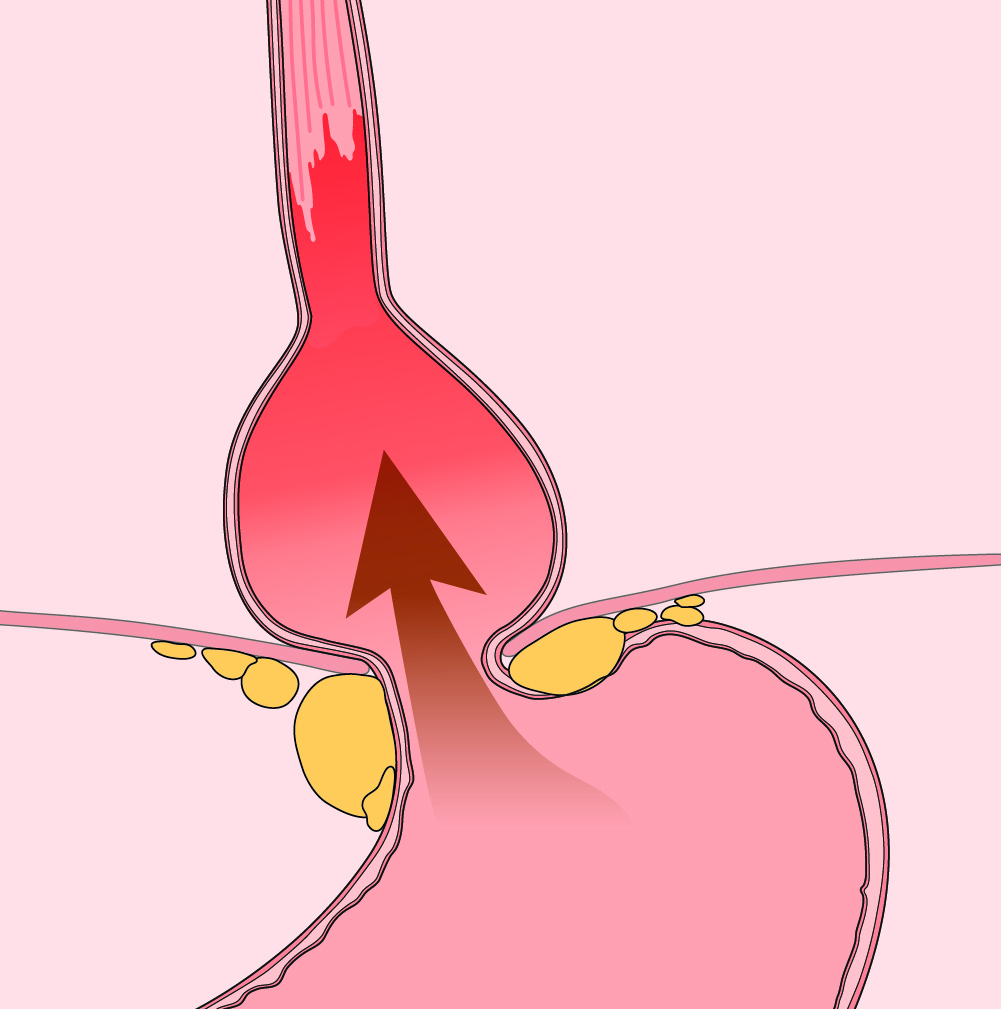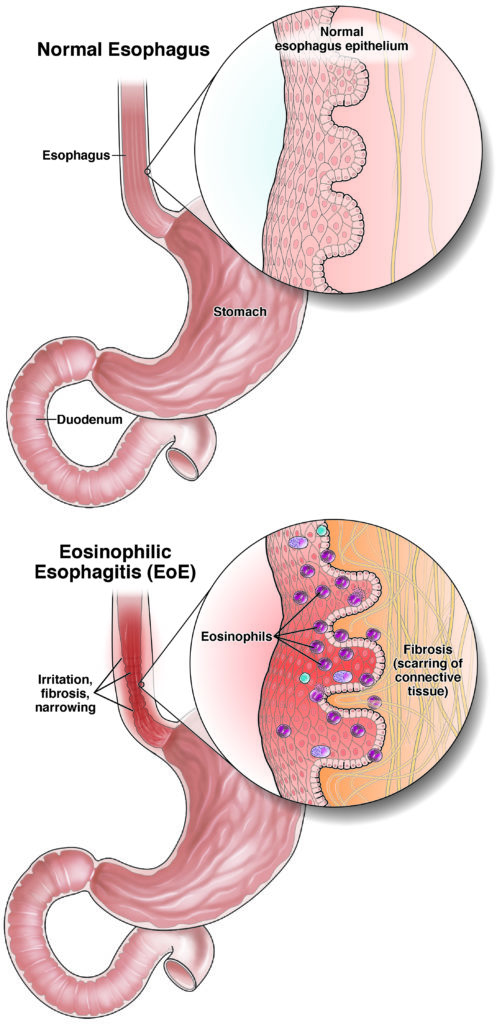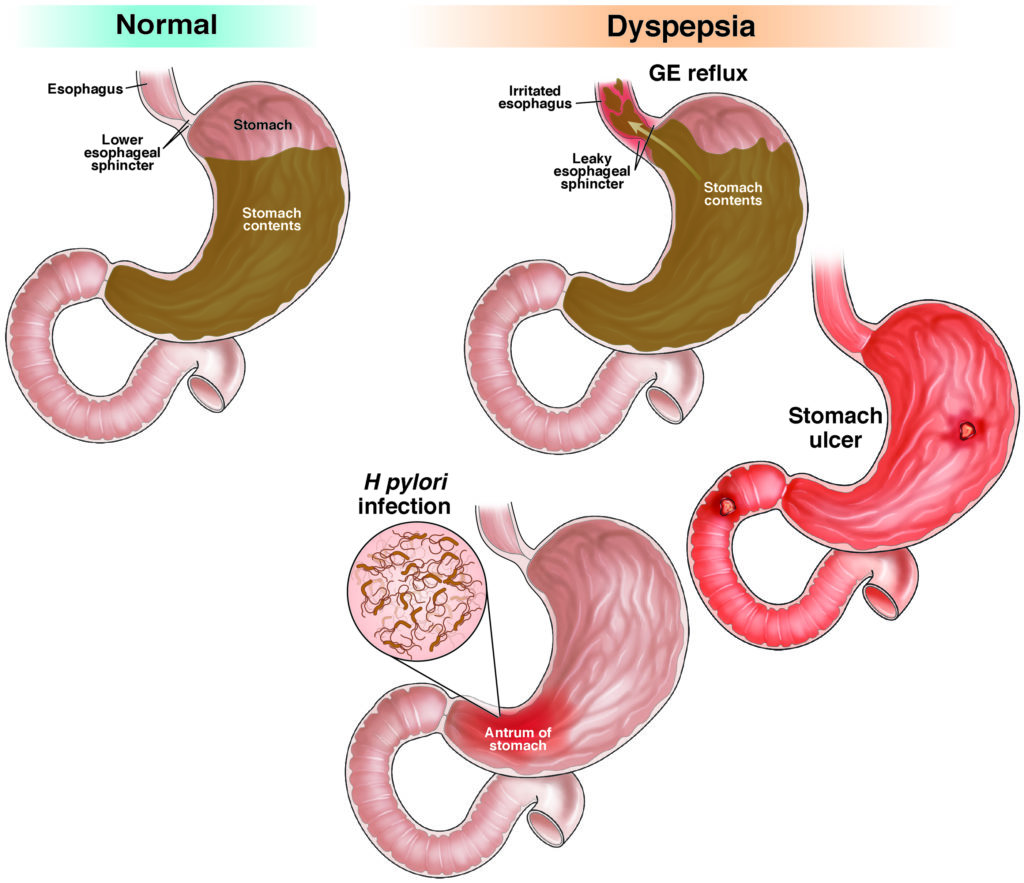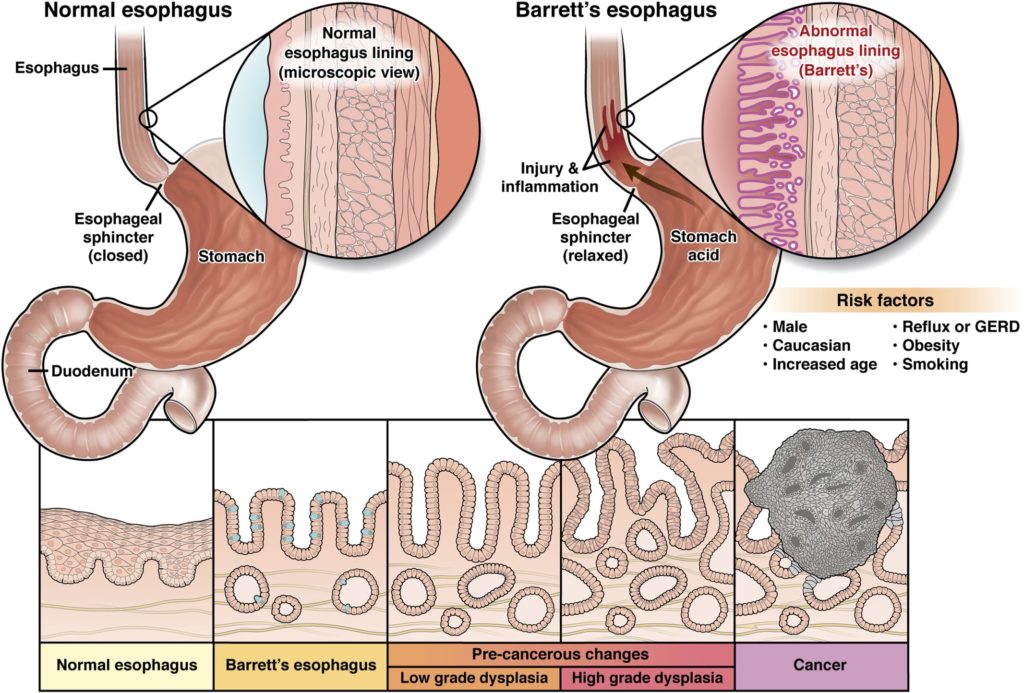Gastroesophageal reflux disease (GERD)

Gastroesophageal reflux disease (GERD), or just acid reflux, is when stomach acid frequently flows back into the esophagus. Heartburn is the most common symptom of GERD.
Eosinophilic esophagitis (EoE)

Eosinophilic esophagitis (EoE) is when white blood cells build up in the esophagus and may result in trouble swallowing, heartburn and reflux.
Dyspepsia

Dyspepsia, or indigestion, may cause upper abdominal pain, burning or heat, and the stomach feeling full during or after eating.
Barrett’s esophagus

Barrett’s esophagus is when the cells lining the esophagus — the tube connecting the mouth to the stomach — change into the cells lining the intestine. The test for Barrett’s is an endoscopy.

